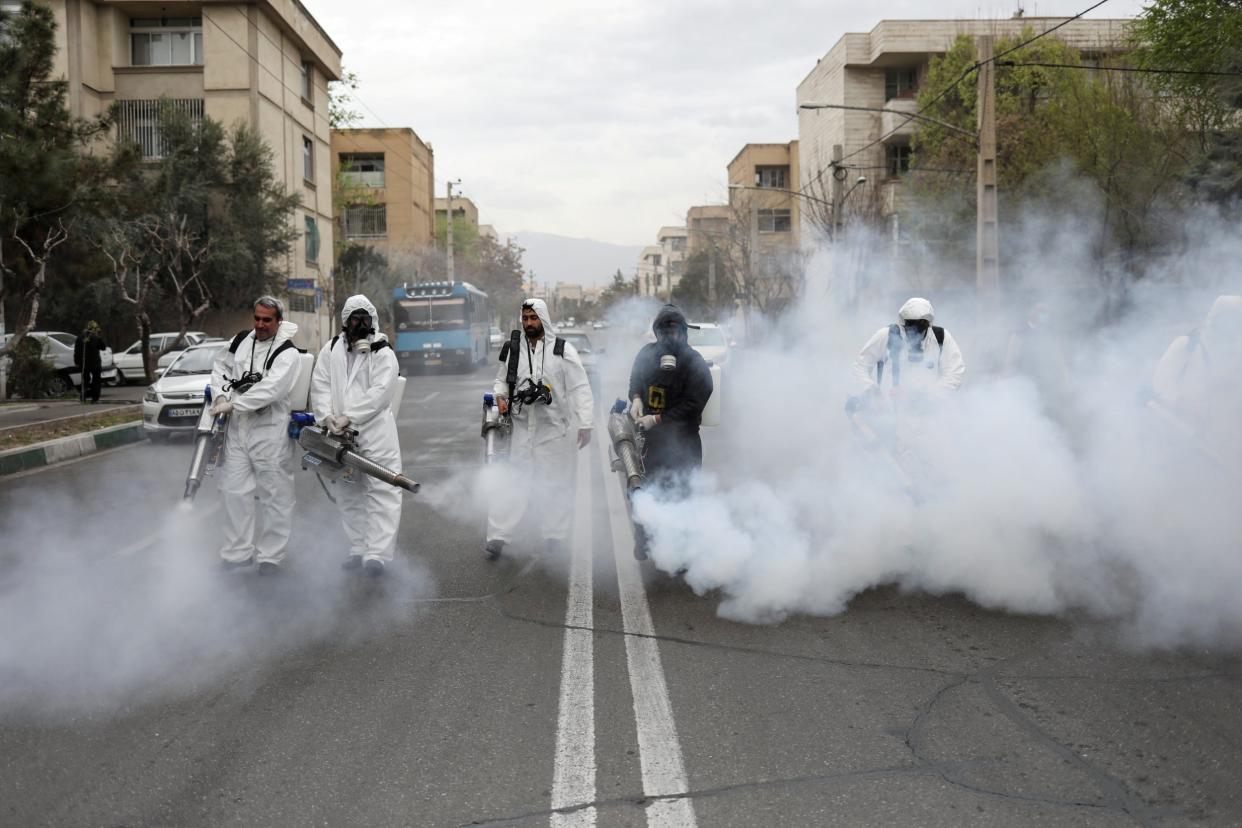Iranian security forces ‘killed dozens of prisoners’ protesting lack of coronavirus protections

The phone call came in early April. It was the office of the local coroner. An official told the family in Iran’s southwest to come pick up their 20-something year-old son’s body.
An overdose of methadone while in Iran’s Sepidar prison was how they described the cause of death. But the family suspects differently.
They believe the authorities are trying to cover up their tracks after he was suffocated with teargas during a prison riot over conditions, amid an outbreak of Covid-19 that has shaken Iran’s penal system.
“He had never had a drug problem and they refused to provide a death certificate,” said Mansoureh Mills, an Amnesty International who spoke to the young man’s relatives.
Rights campaigners are worried about the fate of dozens of Iranian prisoners who may have been harmed by security forces while protesting being confined detention centres amid the coronavirus pandemic. Amnesty International said it feared around 36 prisoners have been killed by Iranian regime enforcers attempting to suppress uprisings in at least eight prisons around the country.
Citing sources inside Iran, Amnesty alleged live ammunition was used to quell protests by detainees fearful they would become sick with Covid-19. Amnesty cited at least one case in which a prisoner was possibly beaten to death.
“It is abhorrent that instead of responding to prisoners’ legitimate demands to be protected from Covid-19, Iranian authorities have yet again resorted to killing people to silence their concerns,” Diana Eltahawy, of Amnesty International, said in a statement in which the group called for an independent probe into allegations of the torture and death of those in custody.
Iran has furloughed or granted pardons to thousands of prisoners to ease congestion in many detention centres amid the worst outbreak of the novel coronavirus pandemic in the Middle East. At least 4,110 people in Iran had died of Covid-19 and at least 66,000 cases have been confirmed, according to the health ministry.
But Amnesty accused Iranians of not releasing enough prisoners, retaining some who were jailed on political charges many independent observers consider trumped up, and even members of religious minorities such as the Baha’is in largely prison largely because of the bigotry of the country’s clerical establishment.
Among those given a temporary release are Nazanin Zaghari-Ratcliffe, a 42-year-old UK national, and Aras Amiri, an Iranian employee of the British Council. Both were jailed on charges of espionage that have been described as absurd by all but the most strident supporters of the Tehran regime.
Many political prisoners who have been convicted of nonviolent offences remain in jail. “Some of the prisoners are in jail on charges of freedom of expression or taking part in protests, which is their legal right,” Reza Khandan, the husband of jailed human rights lawyer Nasrine Sotoudeh, who remains in prison, said in a video. “They should be freed. They are all in danger.”
It is abhorrent that instead of responding to prisoners’ legitimate demands to be protected from Covid-19, Iranian authorities have yet again resorted to killing people to silence their concerns
Diana Eltahawy, Amnesty
Numerous prisoners have begun to test positive for coronavirus in recent weeks, and those detained as well as their relatives have begun to speak out to demand releases, tests, hygienic supplies and separation of sick and healthy detainees.
Prison riots erupted late last month in two prisons in Iran’s restless and largely ethnic Arab southwest, the site of increasing anti-government protests in months, with the captive setting fire to trash bins. Unverified videos posted to the internet showed smoke rising from prison compounds, sometimes with the sounds of gunfire in the background.


